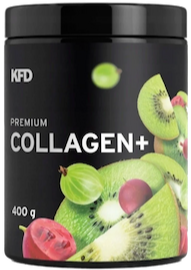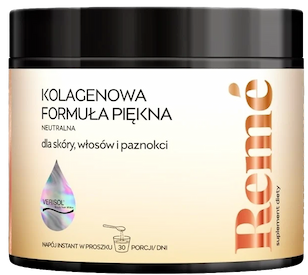Best collagen supplement for women and men over 50 years of age
Collagen after 50 can restore your youth and support your overall health.


Learn more about our editorial process
.

Learn more about our editorial process
.

Learn more about our editorial process
.

Learn more about our editorial process
.
Why you can trust us
Articles on Natu.Care are written based on scientific research, data from government websites and other reliable sources. The texts are written in cooperation with doctors, nutritionists and other health and beauty experts. Articles are reviewed before publication and during significant updates.
.Learn more about our editorial process
.Information about advertisements
Content on Natu.Care may contain links to products from the sale of which we may receive a commission. When creating content, we adhere to high editorial standards and take care to be objective about the products discussed. The presence of affiliate links is not dictated by our partners, and we select the products we review ourselves completely independently.
.Learn more about our terms and Conditions
.Does 40% battery charge on your phone make you uncomfortable? If so, you should be concerned. Some women may only have so much collagen left in their body after the age of 50. In men, it is a little better, but it is still worthwhile to ensure an adequate concentration of the protein of youth.
That's why, together with clinical nutritionist Julia Skrajda, we will give you an overview of the most important information about collagen and help you get back on track.
From this article you will learn:
- How collagen supports your body.
- Which collagen supplement to choose.
- Why fish collagen and hydrolysed collagen are the best combination.
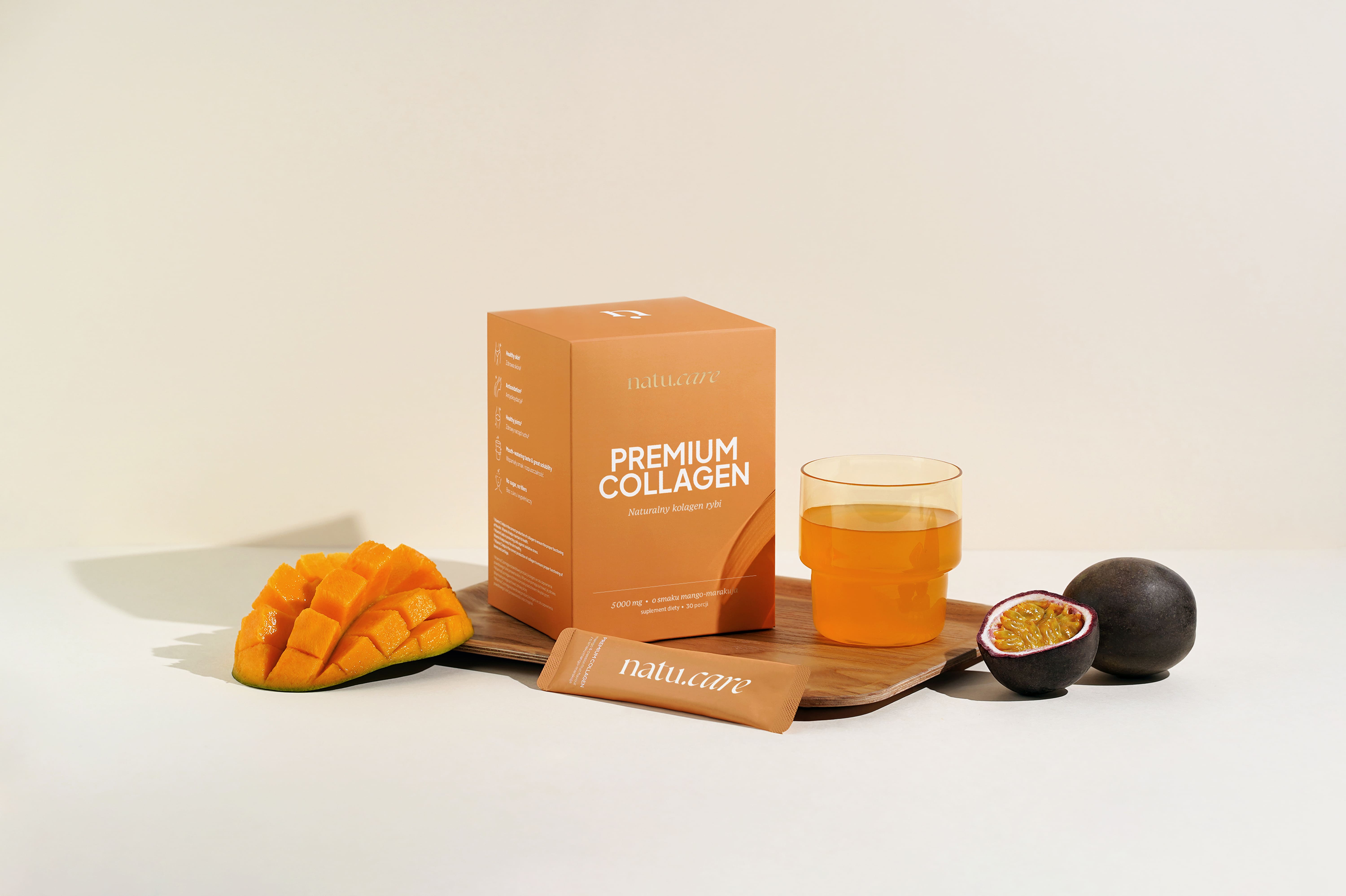
Sprawdź, za co pokochały go tysiące klientek Kolagen Premium 5000 mg, mango-marakuja
Natu.Care Kolagen Premium 5000 mg, mango-marakuja
Natu.Care Kolagen Premium dla zdrowia stawów, skóry, paznokci i włosów. Najlepsza przyswajalność. Optymalna dawka 5 000 lub 10 000 mg. Przebadany przez niezależne laboratorium.
Zobacz więcej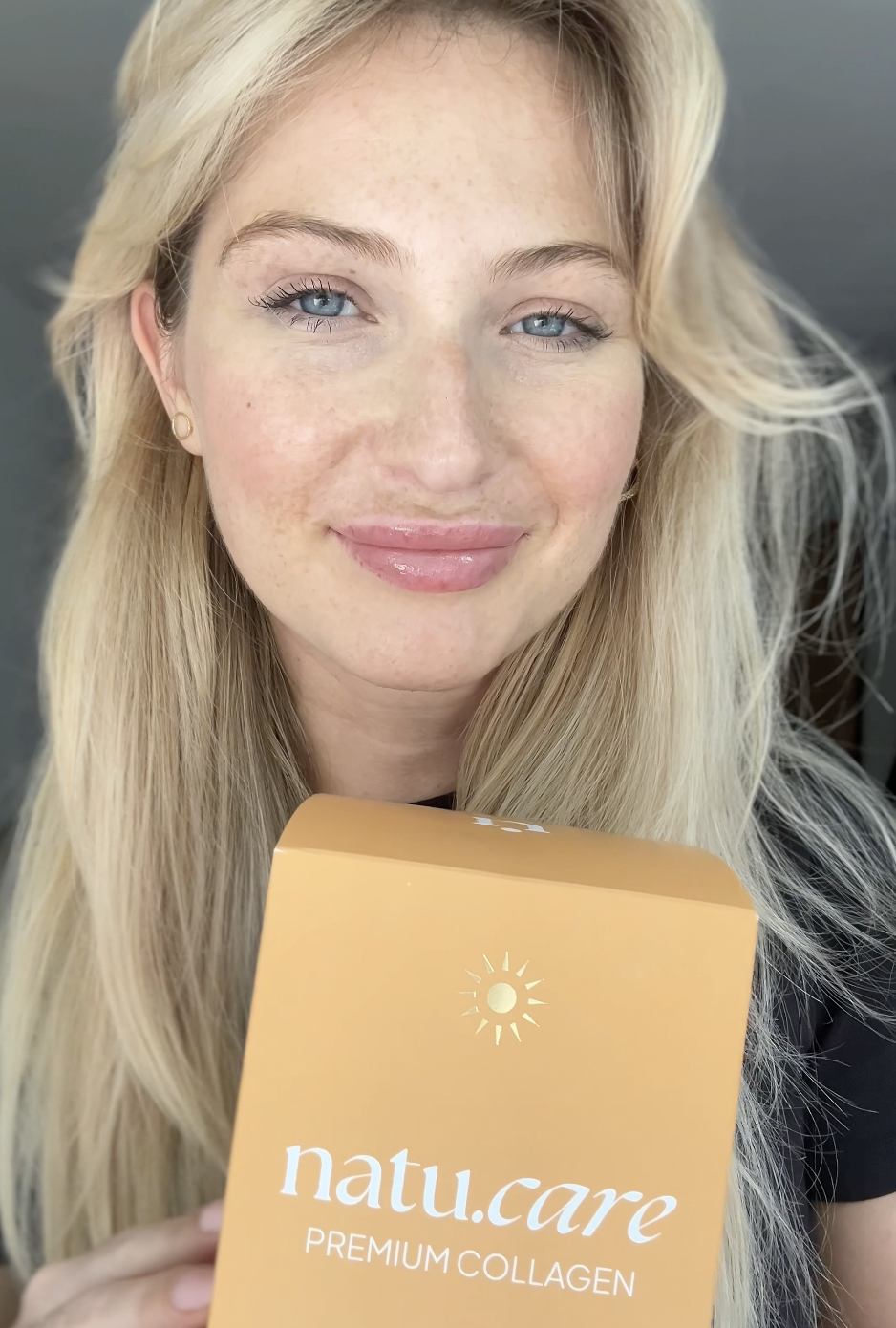
Wybrałam kolagen Natu.Care, ponieważ miał super opinie – a to było dla mnie bardzo ważne! Odkąd go stosuję, moja skóra znacznie się poprawiła i jest nawilżona, a na głowie pojawiły się nowe "baby hair".@Kasia S.
See also:
- The best collagen on the market
- Best facial collagen
- Best collagen for the skin
- Best collagen for joints
- Best collagen for bones
- Best collagen for tendons
- Best collagen for hair
- Best collagen for wrinkles
- Best collagen for cellulite
- Best collagen for acne
- Best collagen for stretch marks
- Best collagen for drinking and collagen for drinking (effects)
Collagen supplementation - why is it worth it?
Collagen supplementation involves providing additional amounts of this protein in the body through dietary supplements. In this way, you can count on the beneficial properties of collagen, more specifically improving the quality of your skin, hair, nails and supporting joint and bone health.
- Improve skin elasticity. Supplementation with collagen after 50 years of age can contribute to increased skin firmness and elasticity, which will slow the signs of ageing, reduce wrinkles and keep skin hydratedand.
- Hair and nail health. Collagen can improve the appearance and structure of hair and nails, making them stronger and healthierand.
- Joint support. Collagen protein is found in joint cartilage, so supplementation with collagen may help to increase their strength, reduce joint pain and lower the risk of injuryand.
- Bone health. Collagen also contributes to bone strength and density, and supplementation can benefit bone health - for example, by reducing the risk of osteoporosisand.
- Support for the immune system. Collagen is important for intestinal health, as it is a component of the mucosa of the gastrointestinal tract. By maintaining a healthy gut membrane, collagen supplementation can contribute to better immune system function by maintaining a proper protective barrierand.
Best collagen after 50 - ranking
Natu.Care Collagen Premium 5000 mg, mango-maracuja

- Collagen content: 5000 mg marine collagen hydrolysate
- .
- Additional active ingredients: vitamin C, low molecular weight hyaluronic acid (and L-theanine and coenzyme Q10 in cocoa flavoured collagen or vitamin A and vitamin E in mango–passion fruit flavoured collagen)
- .
- Form: powder sachets
- .
- Dose: 1 sachet per day
- .
- Sufficient for: 30 days
- .
Product description
Fish collagen from the Natu.Care brand in a dose of 5000 mg. The formula contains a sufficient portion of the active substance to positively affect your joints, musculoskeletal system and immunity.
Take care of your tendons, joint cartilage, ligaments, muscles and even bones by supplying them with the building blocks to function properly. Move without bólu and provide the necessary support for any physical activity.
And as a „gratis” to regular supplementation, you will also receive firm skinóhand, healthy and shiny hair and strong nails.
Natu.Care Premium Collagen is available in two flavours – Cacao Bloom and Rise&Shine. Both formulas are based on the following active ingredients: marine collagen hydrolysate, wild roseóbud extract and hyaluronic acid.
Additionally, Cacao Bloom contains natural L-theanine, coenzyme Q10 and defatted Dutch cacao. Rise&Shine instead contains vitamin E and vitamin A.
These are the best collagens in the world.
These best fish collagens on the market also rós taste – Cacao Bloom is a treat for chocolate lovers. Rise&Shine will appeal to those whoóenjoy the refreshing taste of mangoófruit and passion fruit.
Pros and cons
Fish collagen from the Natu.Care brand in a dose of 5000 mg. The formula contains a sufficient portion of the active substance to positively affect your joints, musculoskeletal system and immunity.
Take care of your tendons, joint cartilage, ligaments, muscles and even bones by supplying them with the building blocks to function properly. Move without bólu and provide the necessary support for any physical activity.
And as a „gratis” to regular supplementation, you will also receive firm skinóhand, healthy and shiny hair and strong nails.
Natu.Care Premium Collagen is available in two flavours – Cacao Bloom and Rise&Shine. Both formulas are based on the following active ingredients: marine collagen hydrolysate, wild roseóbud extract and hyaluronic acid.
Additionally, Cacao Bloom contains natural L-theanine, coenzyme Q10 and defatted Dutch cacao. Rise&Shine instead contains vitamin E and vitamin A.
These are the best collagens in the world.
These best fish collagens on the market also rós taste – Cacao Bloom is a treat for chocolate lovers. Rise&Shine will appeal to those whoóenjoy the refreshing taste of mangoófruit and passion fruit.
Additional information
Fish collagen from the Natu.Care brand in a dose of 5000 mg. The formula contains a sufficient portion of the active substance to positively affect your joints, musculoskeletal system and immunity.
Take care of your tendons, joint cartilage, ligaments, muscles and even bones by supplying them with the building blocks to function properly. Move without bólu and provide the necessary support for any physical activity.
And as a „gratis” to regular supplementation, you will also receive firm skinóhand, healthy and shiny hair and strong nails.
Natu.Care Premium Collagen is available in two flavours – Cacao Bloom and Rise&Shine. Both formulas are based on the following active ingredients: marine collagen hydrolysate, wild roseóbud extract and hyaluronic acid.
Additionally, Cacao Bloom contains natural L-theanine, coenzyme Q10 and defatted Dutch cacao. Rise&Shine instead contains vitamin E and vitamin A.
These are the best collagens in the world.
These best fish collagens on the market also rós taste – Cacao Bloom is a treat for chocolate lovers. Rise&Shine will appeal to those whoóenjoy the refreshing taste of mangoófruit and passion fruit.
User review
Fish collagen from the Natu.Care brand in a dose of 5000 mg. The formula contains a sufficient portion of the active substance to positively affect your joints, musculoskeletal system and immunity.
Take care of your tendons, joint cartilage, ligaments, muscles and even bones by supplying them with the building blocks to function properly. Move without bólu and provide the necessary support for any physical activity.
And as a „gratis” to regular supplementation, you will also receive firm skinóhand, healthy and shiny hair and strong nails.
Natu.Care Premium Collagen is available in two flavours – Cacao Bloom and Rise&Shine. Both formulas are based on the following active ingredients: marine collagen hydrolysate, wild roseóbud extract and hyaluronic acid.
Additionally, Cacao Bloom contains natural L-theanine, coenzyme Q10 and defatted Dutch cacao. Rise&Shine instead contains vitamin E and vitamin A.
These are the best collagens in the world.
These best fish collagens on the market also rós taste – Cacao Bloom is a treat for chocolate lovers. Rise&Shine will appeal to those whoóenjoy the refreshing taste of mangoófruit and passion fruit.
Natu.Care Collagen Premium 10000 mg, cherry

- Collagen content: 10,000 mg of hydrolyzed bovine collagen
- Additional active ingredients: vitamin C, low molecular weight hyaluronic acid, glucosamine, chondroitin, extract of Indian frankincense resin (boswellia serrata)
- Form: powder sachets for drinking
- Serving: 1 sachet per day
- Lasts for: 30 days
Product description
One of the strongest collagens on the market, providing as much as 10,000 mg per daily serving. This product can effectively support the condition of joints, skin, hair, and nails.
With this supplement, you will support your skeletal and joint system as well as your beauty, helping you visually halt the aging process and feel rejuvenated!
Pros and cons
Pros:
- The daily portion of collagen is very large – as much as 10,000 mg.
- Proven collagen formula – COLLinstant, whose effectiveness has been confirmed in clinical studies.
- Effective dose of hyaluronic acid, which additionally moisturizes the skin and positively affects joint health.
- Vitamin C supports the body's natural collagen production.
- Glucosamine is a fundamental building block of compounds found in joint cartilage and a component of collagen that gives elasticity to connective tissue in tendons.
- Chondroitin is a natural component found in the human body, mainly in cartilage. This large molecule (mucopolysaccharide) has the ability to absorb water, which helps maintain the elasticity and resilience of cartilage.
- Frankincense resin extract supports blood circulation and joint mobility and reduces their stiffness. It may help alleviate inflammatory conditions.
- The composition has been tested by the independent and accredited J.S. Hamilton laboratory.
Cons:
- None.
Additional information
Users praise Natu.Care Collagen Premium for the easy dissolving of the powder.
ALLDEYNN Collarose Fish
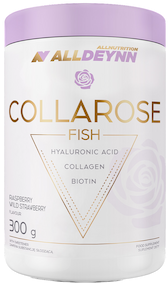
- Collagen content: 5000 mg hydrolysate fish collagen VERISOL F® .
- Additional active ingredients: vitamin C, hyaluronic acid, biotin
- Form: powder to dissolve in water .
- Dose: one scoop (6 g) of powder daily .
- Sufficient for: 50 days .
Product description
Atlantic cod collagen VERISOL F® contained in the formula are easily absorbed collagen peptides of fish origin. Regular supplementation can firm your skinóhand and slow down the ageing process. Your nails will become stronger and stop breaking. The addition of biotin will improve the condition of your hairów. The collagen portion is high enough to also have a good effect on your joints, muscles and bones.
Pros and cons
Atlantic cod collagen VERISOL F® contained in the formula are easily absorbed collagen peptides of fish origin. Regular supplementation can firm your skinóhand and slow down the ageing process. Your nails will become stronger and stop breaking. The addition of biotin will improve the condition of your hairów. The collagen portion is high enough to also have a good effect on your joints, muscles and bones.
Additional information
Atlantic cod collagen VERISOL F® contained in the formula are easily absorbed collagen peptides of fish origin. Regular supplementation can firm your skinóhand and slow down the ageing process. Your nails will become stronger and stop breaking. The addition of biotin will improve the condition of your hairów. The collagen portion is high enough to also have a good effect on your joints, muscles and bones.
Expert and user opinion
Atlantic cod collagen VERISOL F® contained in the formula are easily absorbed collagen peptides of fish origin. Regular supplementation can firm your skinóhand and slow down the ageing process. Your nails will become stronger and stop breaking. The addition of biotin will improve the condition of your hairów. The collagen portion is high enough to also have a good effect on your joints, muscles and bones.
DuoLife Collagen fish collagen 2500 mg
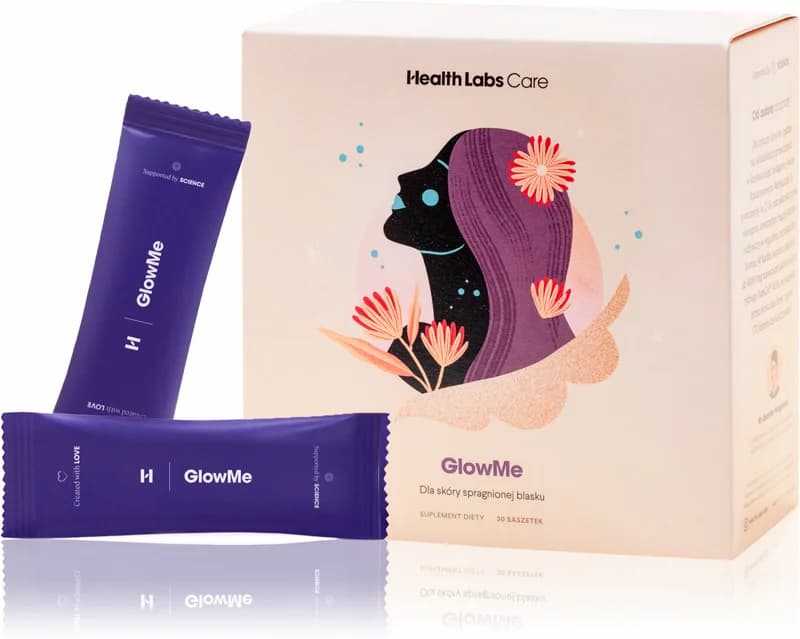
- Collagen content: 2500 mg collagen
- Additional active ingredients: vitamin C, silicon, glucosamine, hyaluronic acid, nettle and bamboo extracts
- Form: liquid to drink .
- Dose:25 ml .
- Sufficient for: 30 days .
Product description
100% natural collagen liquid without unnecessary ingredientsós. The composition of ingredientsós improves the appearance and condition of skinóry, hairów, nails. DuoLife is a good choiceór if you notice the first signs of skinóry ageing or want to stop this process. A tasty liquid, convenient to use.
Pros and cons
100% natural collagen liquid without unnecessary ingredientsós. The composition of ingredientsós improves the appearance and condition of skinóry, hairów, nails. DuoLife is a good choiceór if you notice the first signs of skinóry ageing or want to stop this process. A tasty liquid, convenient to use.
Additional information
100% natural collagen liquid without unnecessary ingredientsós. The composition of ingredientsós improves the appearance and condition of skinóry, hairów, nails. DuoLife is a good choiceór if you notice the first signs of skinóry ageing or want to stop this process. A tasty liquid, convenient to use.
User review
100% natural collagen liquid without unnecessary ingredientsós. The composition of ingredientsós improves the appearance and condition of skinóry, hairów, nails. DuoLife is a good choiceór if you notice the first signs of skinóry ageing or want to stop this process. A tasty liquid, convenient to use.
Pharmovit liquid collagen 10000 mg
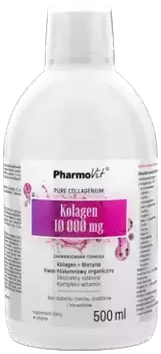
- Collagen content: 10000 mg hydrolysed bovine collagen types I and III .
- Additional active ingredients: hyaluronic acid, natural plant extracts, vitamin C, B vitamins, zinc, vitamin D
- Form: vials .
- Dose: 25 ml .
- Sufficient for: 20 days .
Product description
A solid daily dose of collagen for jointómuscle and bone health and beauty. The duo of collagen and vitamin C has a positive effect on each other, so that „the protein of youth” is better absorbed and more efficiently produced in the body.
Pros and cons
A solid daily dose of collagen for jointómuscle and bone health and beauty. The duo of collagen and vitamin C has a positive effect on each other, so that „the protein of youth” is better absorbed and more efficiently produced in the body.
Additional information
A solid daily dose of collagen for jointómuscle and bone health and beauty. The duo of collagen and vitamin C has a positive effect on each other, so that „the protein of youth” is better absorbed and more efficiently produced in the body.
KFD Premium Collagen+
Product description
High dose of collagen and a real bomb of vitamins C and D and organic sulphur. With this preparation the effects will come immediately. You will improve the firmness of your skin and reduce wrinkles. Your hair and nails will be strong and shiny.
A generous dose of collagen will improve the mobility of your jointsós, benefit your bone system and muscles. Do you do sports and need a product thatós able to keep up with your needs? This product will do the trick.
Pros and cons
High dose of collagen and a real bomb of vitamins C and D and organic sulphur. With this preparation the effects will come immediately. You will improve the firmness of your skin and reduce wrinkles. Your hair and nails will be strong and shiny.
A generous dose of collagen will improve the mobility of your jointsós, benefit your bone system and muscles. Do you do sports and need a product thatós able to keep up with your needs? This product will do the trick.
Additional information
High dose of collagen and a real bomb of vitamins C and D and organic sulphur. With this preparation the effects will come immediately. You will improve the firmness of your skin and reduce wrinkles. Your hair and nails will be strong and shiny.
A generous dose of collagen will improve the mobility of your jointsós, benefit your bone system and muscles. Do you do sports and need a product thatós able to keep up with your needs? This product will do the trick.
Expert opinion
High dose of collagen and a real bomb of vitamins C and D and organic sulphur. With this preparation the effects will come immediately. You will improve the firmness of your skin and reduce wrinkles. Your hair and nails will be strong and shiny.
A generous dose of collagen will improve the mobility of your jointsós, benefit your bone system and muscles. Do you do sports and need a product thatós able to keep up with your needs? This product will do the trick.
Product description
The dietary supplement from Remé contains beef collagen in a patented formula and vitamin C, whichóra aids its absorption. The formula comes in three flavours: neutral, orange-maracuja and strawberry-pomegranate. The formula can effectively support and improve the condition of the skinóry, hairóry and nails.
Pros and cons
The dietary supplement from Remé contains beef collagen in a patented formula and vitamin C, whichóra aids its absorption. The formula comes in three flavours: neutral, orange-maracuja and strawberry-pomegranate. The formula can effectively support and improve the condition of the skinóry, hairóry and nails.
Additional information
The dietary supplement from Remé contains beef collagen in a patented formula and vitamin C, whichóra aids its absorption. The formula comes in three flavours: neutral, orange-maracuja and strawberry-pomegranate. The formula can effectively support and improve the condition of the skinóry, hairóry and nails.
The dietary supplement from Remé contains beef collagen in a patented formula and vitamin C, whichóra aids its absorption. The formula comes in three flavours: neutral, orange-maracuja and strawberry-pomegranate. The formula can effectively support and improve the condition of the skinóry, hairóry and nails.
Product tiles contain affiliate links. As An Amazon Partner, I earn from qualifying purchases.
See also:
- Drinking collagen
- Collagen in sachets
- Collagen powder
- Liquid collagen
- Collagen in tablets
- Collagen hydrolysate
- Collagen peptides
- Lyophilised collagen
- Collagen type 1, type 2 and type 3
How much collagen is in the body after the age of 50?
Calculating the average concentration of collagen in the body is straightforward ... up to the age of 50. Its standard annual loss is about 1.5 per cent, and it starts at the age of 25. Therefore, by the time you are five in front, you will have about 66 per cent collagen in your bodyand.
Well, but what's next?
In men it's straightforward - the loss remains the same, so by the age of 60, men will be left with around 57 per cent of collagen. But in women, the situation is much more complicated.
Collagen and the menopause
Menopause significantly accelerates collagen loss and promotes stiffening of collagen fibres, which become shorter and more twisted. Within five years of the onset of the menopause, you lose ⅓ of all collagen in your body, and after the menopause you may be left with around 40% of the levels from your youth.
Example:
Assuming you start menopause at age 50, you will have about 66% collagen at its start. But after five years (at 55) you will only have about 44% collagen left. And just before the age of 60, the youth protein index will settle at around 40% collagen.
Note
Not every woman starts the menopause at the age of 50. Therefore, remember that our calculations are illustrative and refer to general statistics, not specific individuals.
What are the symptoms of collagen deficiency after the age of 50?
Between the ages of 50 and 60, most women will lose more than 20% of all collagen in the body. In men, it will be a little better, but the rate will also be low enough that the symptoms of deficiency will most likely already be noticeable to the naked eye.
Symptoms of collagen deficiency may includeand:
- Wrinkles and loss of skin firmness. Low collagen levels can lead to a decrease in skin elasticity, wrinkle formation and overall skin ageing.
- Weakened hair and nails. Collagen deficiency can affect the quality of hair, causing breakage and dryness. Similarly, it can weaken nails, leading to brittleness.
- Joint pain and reduced mobility. Collagen is an integral component of the connective tissue that includes joint cartilage. A lack of it can increase the risk of joint disease and lead to pain and reduced movement.
- Problems with the skeletal system. Collagen deficiency can contribute to loss of bone mass, which increases the risk of fractures and osteoporosis.
- Poor regeneration and wound healing. Collagen plays an important role in healing and regeneration processes. Deficiencies of this protein can lead to slower wound healing, inflammation and an increased risk of scarring.
- Digestive system problems. Collagen is crucial for the health of the intestinal mucosa. Collagen deficiency can lead to digestive problems such as leaky gut syndrome and food intolerances.
Note
Remember that these symptoms can occur for a variety of reasons and be caused by a variety of factors. Therefore, if you are unsure, it is a good idea to consult your doctor or dietician.
See also:
Hydrolysed and lyophilised collagen - which one to choose after 50 years of age?
On the market you may come across two types of popular collagen supplements - freeze-dried and hydrolysed. The table below will help you make a good decision when buying.
|
Hydrolysed collagen (collagen hydrolysate)and |
||
|
Production process |
Collagen is broken down into smaller protein fragments (collagen peptides). |
Collagen is lyophilised, a production method that involves freezing the ingredient and then evaporating the water in a gaseous state, without passing through a liquid phase. |
|
Absorption |
||
|
Faster absorption by the body because the hydrolysate has smaller molecules than natural collagen. |
Greater than that of collagen hydrolysate. The particles of freeze-dried collagen are larger, which can affect bioavailability. However, some manufacturers claim that freeze-drying can better maintain the structure of collagen. |
|
|
Water solubility |
Easily dissolves, making it easy to add to beverages. |
Liophilised collagen is water-soluble, but can be more difficult to mix compared to hydrolysed collagen, which affects consistency when ingested. |
|
Price |
Typically cheaper than freeze-dried, due to the large number of products and competitive prices. |
The limited number of formulations results in a high price for individual supplements. |
Conclusions
Hydrolysed and freeze-dried collagen are two different types of collagen, which differ in production method, bioavailability, solubility and price.
Hydrolysed collagen has smaller molecules, which makes it easier to absorb, plus it is easier to dissolve and often cheaper. Lyophilised collagen is potentially worse absorption, but perhaps the preservation of the collagen structure has value in itself. It is usually more expensive. Ultimately, the choice is entirely yours.
Why is fish collagen better than beef collagen?
On the market you may come across two common types of collagen in terms of origin - fish and bovine collagen. Occasionally you will also see pork and poultry collagen, but they are rare in Poland and their properties are similar to beef collagen.
Why choose fish collagen (marine; also called marine collagen)?
- Lower absorption. marine collagen has smaller molecules (peptides), making it better absorbed by the body than beef collagen. Studies indicate that in selected cases, marine collagen will assimilate up to 50% better than competing solutionsand.
- Safety. Marine collagen is less allergenic than beef collagen, which is important for those with sensitivities to animal products. It doesn't stop there, beef collagen supplementation is also associated with a risk of contracting an animal-borne diseaseand.
- Ecology. Fish collagen production is often more sustainable and environmentally friendly than that associated with bovine collagen.
- Good content type I collagen. Some studies indicate that fish collagen contains more type I collagen, the most important type of collagen in the bodyand.
- A choice for pescowegetarians. Fish collagen may be a suitable alternative for people who do not eat meat but do eat fish.
What collagen to choose after 50 years of age?
When looking for an effective supplement after the age of 50, it is worth considering the following criteria:
- Quantity of collagen. Research suggests that optimal supplements contain 2.5 to 15 grams of hydrolysed collagen, as smaller amounts may be insufficient and larger amounts unnecessaryand.
- Form of preparation. Avoid collagen creams as they have no real effect, instead choose powder, liquid, capsule or tablet form - according to your preference.
- Purity of formulation. Choose supplements without preservatives or other fillers, being mindful that the ingredients in the formula go into your body.
- Laboratory testing. Be assured that the quality of the supplement's composition has been confirmed by independent, accredited laboratories.
- Origin of collagen. Some supplements contain collagen from wild caught fish, which is good for the environment and ensures animal welfare. If you're concerned about the environment, choose products with sustainable fishing certification.
- Additives. Look out for the content vitamins and minerals, such as vitamin C, which can support collagen synthesis.
- Taste. Be guided by your taste; the more you like it, the more likely you are to take it regularly. Here you will see the full criteria.
How does collagen in cream work?
Applying collagen to the outer layer of the skin, for example in the form of a cream, does not produce the effects that manufacturers suggest. The benefits of such application are limited and include subtle smoothing of the skin or protection against moisture loss. Nevertheless, the perceived smoothness can be misleading. The collagen molecules are too large to penetrate the dermis and provide long-term support..
 .
.
Witold Tomaszewskidoctor of medical sciences
See also:
How to take collagen after 50 years of age?
As with other supplements, collagen should be taken according to the instructions on the packaging or suggested medical or pharmaceutical advice. Before introducing a supplement into your diet, be sure to check the appropriate dosage and any contraindications, which may vary from product to productand.
Collagen protein overdose is rare and generally not dangerous. However, there is a risk of ingesting too much of other nutrients (such as vitamins or minerals) that may be present in supplements containing collagen.
Collagen supplementation - after how long do the effects last?
When using collagen in liquid or tablet form on a regular basis, you may notice the first effects after about 8-24 weeks. This is a big discrepancy, but it is difficult to say how long you will have to wait to support your body, as this is an individual matterand.
However, there is no specific time limit for collagen supplementation - you can use it without interruption.
Contraindications to using collagen after the age of 50
Collagen is a natural building protein, so most people can supplement without concern. However, this does not mean that there are no exceptions to the rule.
Collagen contraindications after the age of 50 areand:
- pregnancy and breastfeeding period,
- gastrointestinal problems,
- selected skin disorders,
- selected skin disorders,
- selected skin disorders
- kidney and liver diseases,
- allergies to supplement ingredients,
- adherence to selected medications,
- some autoimmune disorders,
Side effects with collagen supplementation after the age of 50
Just as with contraindications, with side effects we are talking about rather individual cases. A handful of people may experience side effects, which include allergic reactions (e.g. itching or rashes). Other side effects include gastrointestinal problems such as nausea or bloatingand.
Is there a vegan collagen?
There is no such thing as vegan collagen. Collagen is an animal protein, therefore all dietary supplements on the market are neither vegan nor vegetarianand.
Manufacturers who market their products under the name vegan collagen are actually selling a collection of amino acids (including lysine) that may be part of collagen, rather than collagen itself.
Specialists are, however, trying to produce collagen from rice or bamboo, as well as genetically modified collagen from yeast or bacteria. However, these are preliminary efforts that need further confirmation.

Sprawdź, za co pokochały go tysiące klientek Kolagen Premium 5000 mg, mango-marakuja
Natu.Care Kolagen Premium 5000 mg, mango-marakuja
Natu.Care Kolagen Premium dla zdrowia stawów, skóry, paznokci i włosów. Najlepsza przyswajalność. Optymalna dawka 5 000 lub 10 000 mg. Przebadany przez niezależne laboratorium.
Zobacz więcej
Wybrałam kolagen Natu.Care, ponieważ miał super opinie – a to było dla mnie bardzo ważne! Odkąd go stosuję, moja skóra znacznie się poprawiła i jest nawilżona, a na głowie pojawiły się nowe "baby hair".@Kasia S.
See also:
Summary
- After the age of 50, women lose the most collagen.
- Collagen can help to reduce collagen loss.
- Collagen can support the condition of the skin, joints, hair and nails.
- Collagen can support the condition of the skin, joints, hair and nails.
- Collagen supplementation can prevent, for example, joint pain and the deterioration of hair or nails.
- Hydrolysed collagen appears to be a better proposition than freeze-dried.
- Fish collagen can absorb up to 50% better than bovine collagen.
FAQ
.When is it a good idea to start supplementing collagen?
.Everyone who has reached the age of 25-30 should consider collagen supplementation, as this is when the body begins to experience deficiencies of this protein. Collagen deficiency can manifest as reduced density skin and deterioration hair, nails or joints.
It is worth choosing a good supplement such as Natu.Care's Premium Collagen 10 000 mg, Colladrop Flex, Sundose Collagen or Colladrop Forte.
Can collagen help in the fight against cellulite?
.Collagen can be helpful in the fight against cellulite because it positively affects the condition of the skin, its elasticity, firmness and hydration.
However, the complete removal of cellulite also requires a healthy lifestyle - physical activity (aerobics, running, cycling), strength training, a healthy diet rich in protein, fibre, vitamins and minerals and massage to stimulate circulation and make the skin more elastic. By itself collagen for cellulite may not be enough.
Are there side effects of collagen supplementation?
.Normally collagen supplementation is not associated with side effects. The exception to this is people who are allergic to the ingredients in the formulations, fish or seafood - in which case it is worth choosing supplements carefully.
.What is the cost of collagen supplements for the face?
.The price of facial collagen depends on the brand and reputation of the product - you can easily find suggestions for £30-60, but the quality may not be satisfactory. For effective wrinkle collagen you should be prepared to spend around £100-300.
What dose of collagen is recommended to combat cellulite?
.Taking 5-15 grams of collagen per day will be effective in the fight against cellulite. It is worth choosing hydrolysed collagen protein, which is better absorbed by the body. You can also increase your intake of vitamin C, which helps collagen synthesis - sources of vitamin C include citrus fruits, strawberries, peppers and kiwi.
What foods are rich in collagen?
.Collagen can be found in products such as chicken feet, chicken with skin, broth on beef or pork bones, meat and fish jellies, brawn, fish with skin. It is also worth consuming foods that support collagen synthesis, such as fruits and vegetables rich in vitamin C.
When is the best time to take collagen?
.Drink collagen when you want. The time of day can be tailored to your preference as the body digests around the clock. Regular supplementation is more important than a specific time of day.
.
Sources
.See all
.Proksch, E., Schunck, M., Zague, V., Segger, D., Degwert, J., & Oesser, S. (2014). Oral intake of specific bioactive collagen peptides reduces skin wrinkles and increases dermal matrix synthesis. Skin Pharmacology and Physiology, 27(3), 113-119. https://doi.org/10.1159/000355523
Reilly, D. M., & Lozano, J. (2021). Skin collagen through the lifestages: Importance for skin health and beauty. Plastic and Aesthetic Research, 8, 2. https://doi.org/10.20517/2347-9264.2020.153
Kahan, V., Andersen, M. L., Tomimori, J., & Tufik, S. (2010). Can poor sleep affect skin integrity? Medical Hypotheses, 75(6), 535-537. https://doi.org/10.1016/j.mehy.2010.07.018
Fisher, G. J., Quan, T., Purohit, T., Shao, Y., Cho, M. K., He, T., Varani, J., Kang, S., & Voorhees, J. J. (2009). Collagen Fragmentation Promotes Oxidative Stress and Elevates Matrix Metalloproteinase-1 in Fibroblasts in Aged Human Skin. The American Journal of Pathology, 174(1), 101-114. https://doi.org/10.2353/ajpath.2009.080599
agoda MD, M. R., & Gans PhD, E. H. (2012). A Nutritional Supplement Formulated with Peptides, Lipids, Collagen and Hyaluronic Acid Optimizes Key Aspects of Physical Appearance in Nails, Hair and Skin. Journal of Nutrition & Food Sciences, s5. https://doi.org/10.4172/2155-9600.S5-002
Kujala, U. M., Kaprio, J., & Sarno, S. (1994). Osteoarthritis of weight-bearing joints of lower limbs in former elite male athletes. BMJ, 308(6923), 231-234. https://doi.org/10.1136/bmj.308.6923.231
Moskowitz, R. W. (2000). Role of collagen hydrolysate in bone and joint disease. Seminars in Arthritis and Rheumatism, 30(2), 87-99. https://doi.org/10.1053/sarh.2000.9622
Yes, Y. J., Kim, Y. J., Lee, J. G., Yi, Y.-H., Cho, Y. H., Kang, G. H., & Lee, S. Y. (2019). Effect of Oral Ingestion of Low-Molecular Collagen Peptides Derived from Skate (Raja Kenojei) Skin on Body Fat in Overweight Adults: A Randomized, Double-Blind, Placebo-Controlled Trial. Marine Drugs, 17(3), 157. https://doi.org/10.3390/md17030157
Ueno, R., Takaoka, Y., Shimojo, N., Ohno, F., Yamaguchi, T., Matsunaga, K., & Kameda, M. (2020). A case of pediatric anaphylaxis caused by gummy tablets containing fish collagen. Asia Pacific Allergy, 10(4), e35. https://doi.org/10.5415/apallergy.2020.10.e35
Hu, Z., Yang, P., Zhou, C., Li, S., & Hong, P. (2017). Marine Collagen Peptides from the Skin of Nile Tilapia (Oreochromis niloticus): Characterization and Wound Healing Evaluation. Marine Drugs, 15(4), Article 4. https://doi.org/10.3390/md15040102
Collagens of marine origin and their potential applications-PMC. (n.d.). Retrieved 14 April 2023, from https://www.ncbi.nlm.nih.gov/pmc/articles/PMC4278207/
Marine Collagen from Alternative and Sustainable Sources: Extraction, Processing and Applications-PMC. (n.d.). Retrieved 17 April 2023, from https://www.ncbi.nlm.nih.gov/pmc/articles/PMC7230273/
Silva, T. H., Moreira-Silva, J., Marques, A. L. P., Domingues, A., Bayon, Y., & Reis, R. L. (2014). Marine Origin Collagens and Its Potential Applications. Marine Drugs, 12(12), Article 12. https://doi.org/10.3390/md12125881
Jelonek, L. (2023). Collagen. Everything you need to know (B. Turczynski, ed.; 1st ed.). Natu.Care. https://books.google.com/books?vid=9788396887801
..
Editorials
Meet the team


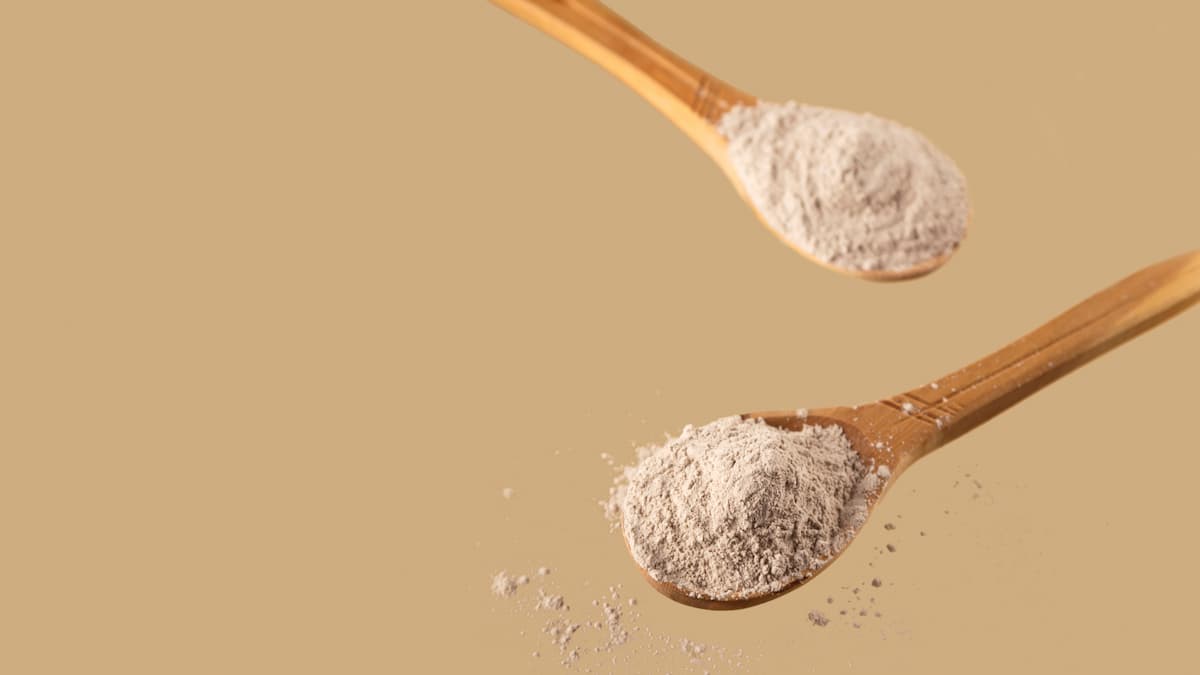
Everything you want to know about COLLinstant collagen.

Collibre collagen is an interesting supplement in shot form.
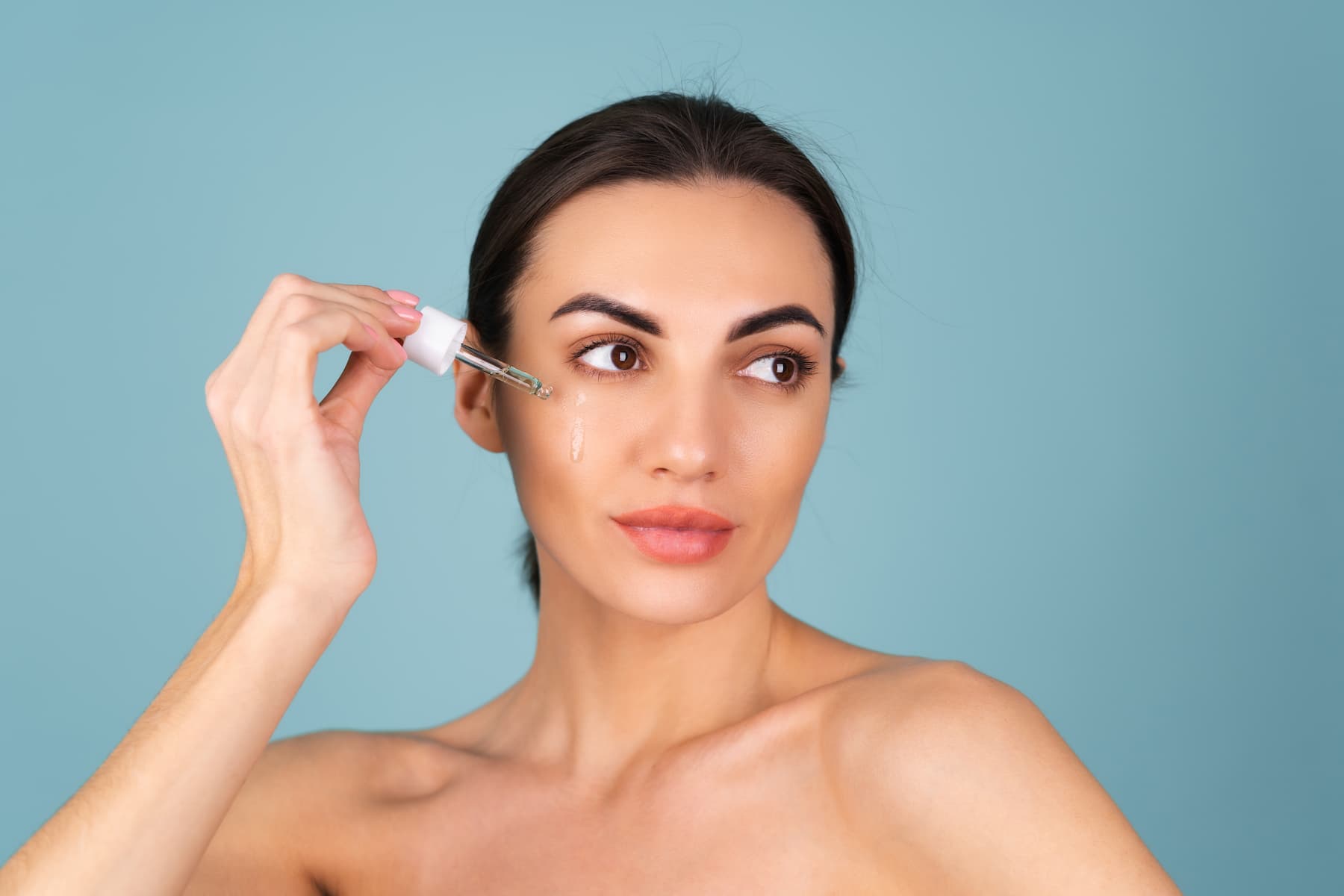
Solgar collagen with hyaluronic acid is a dietary supplement that supports skin and joint health.
